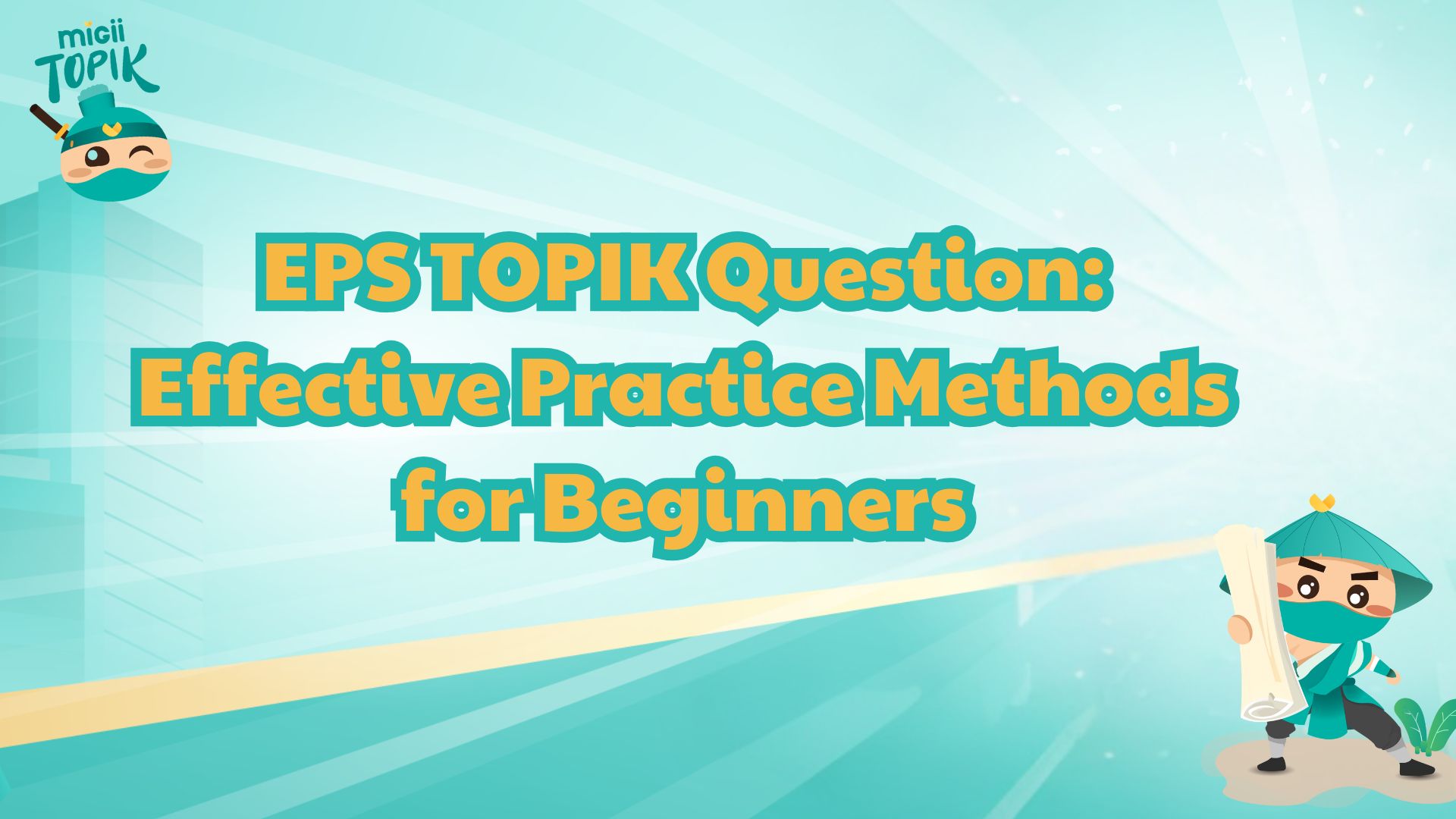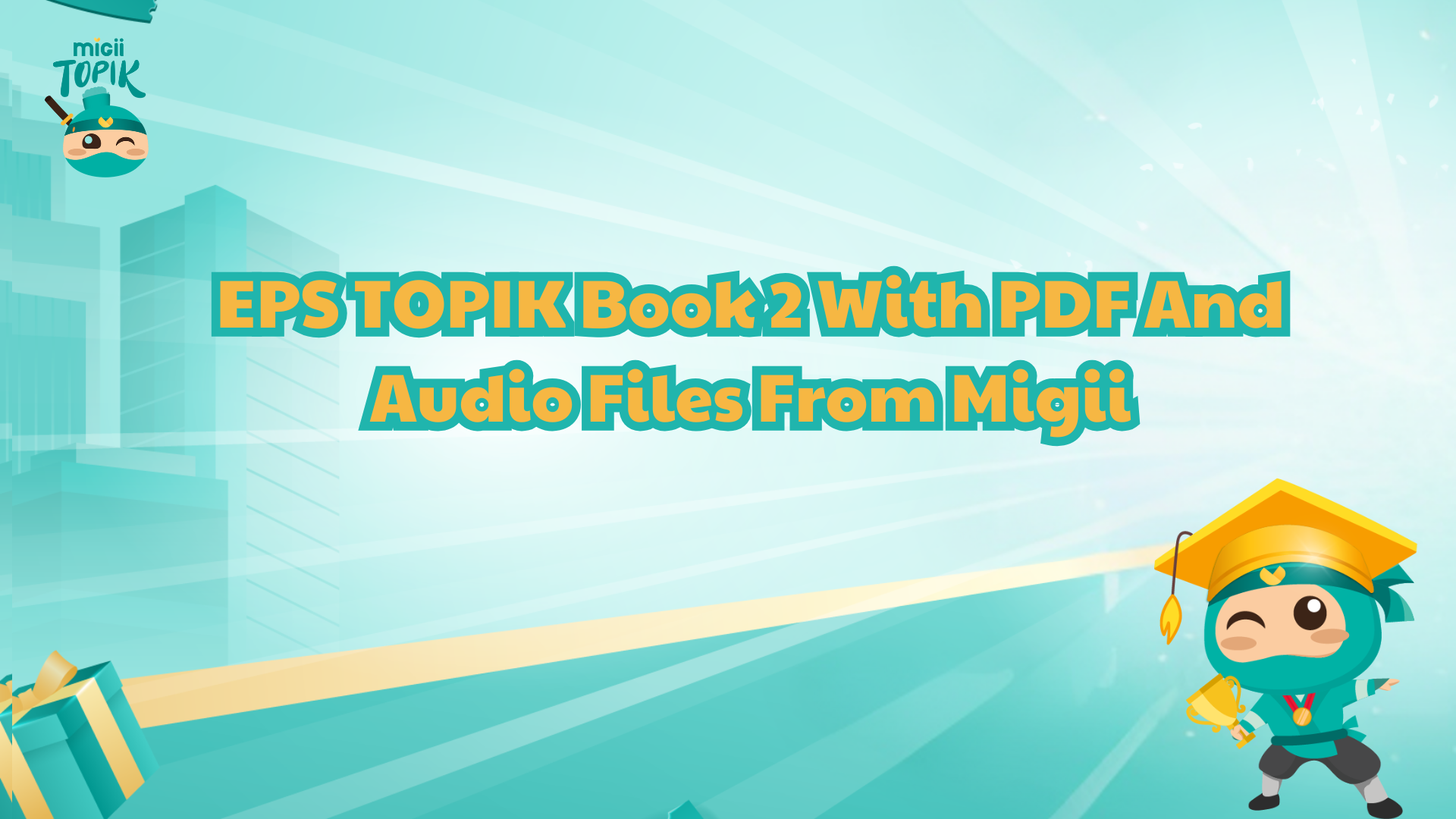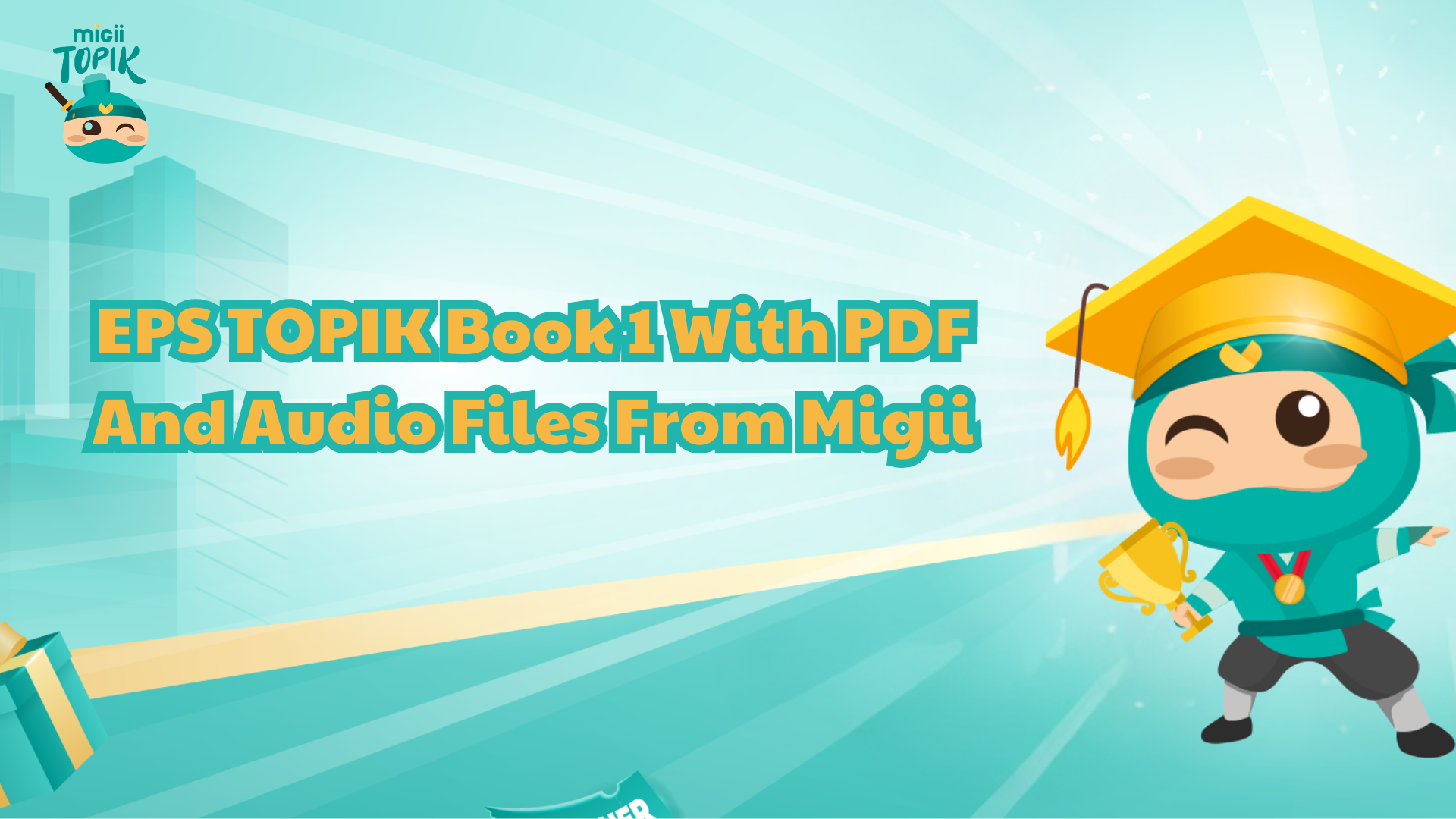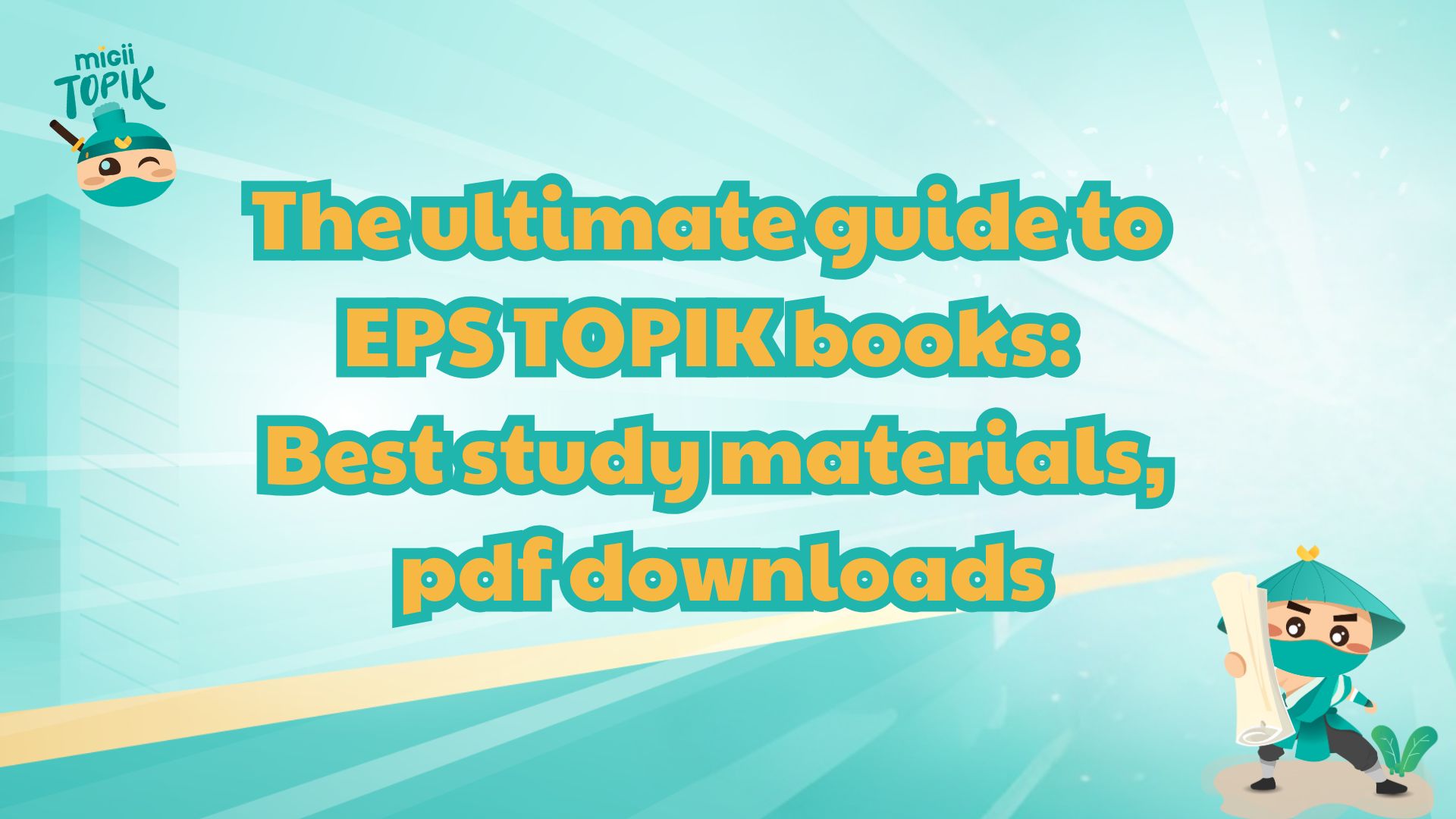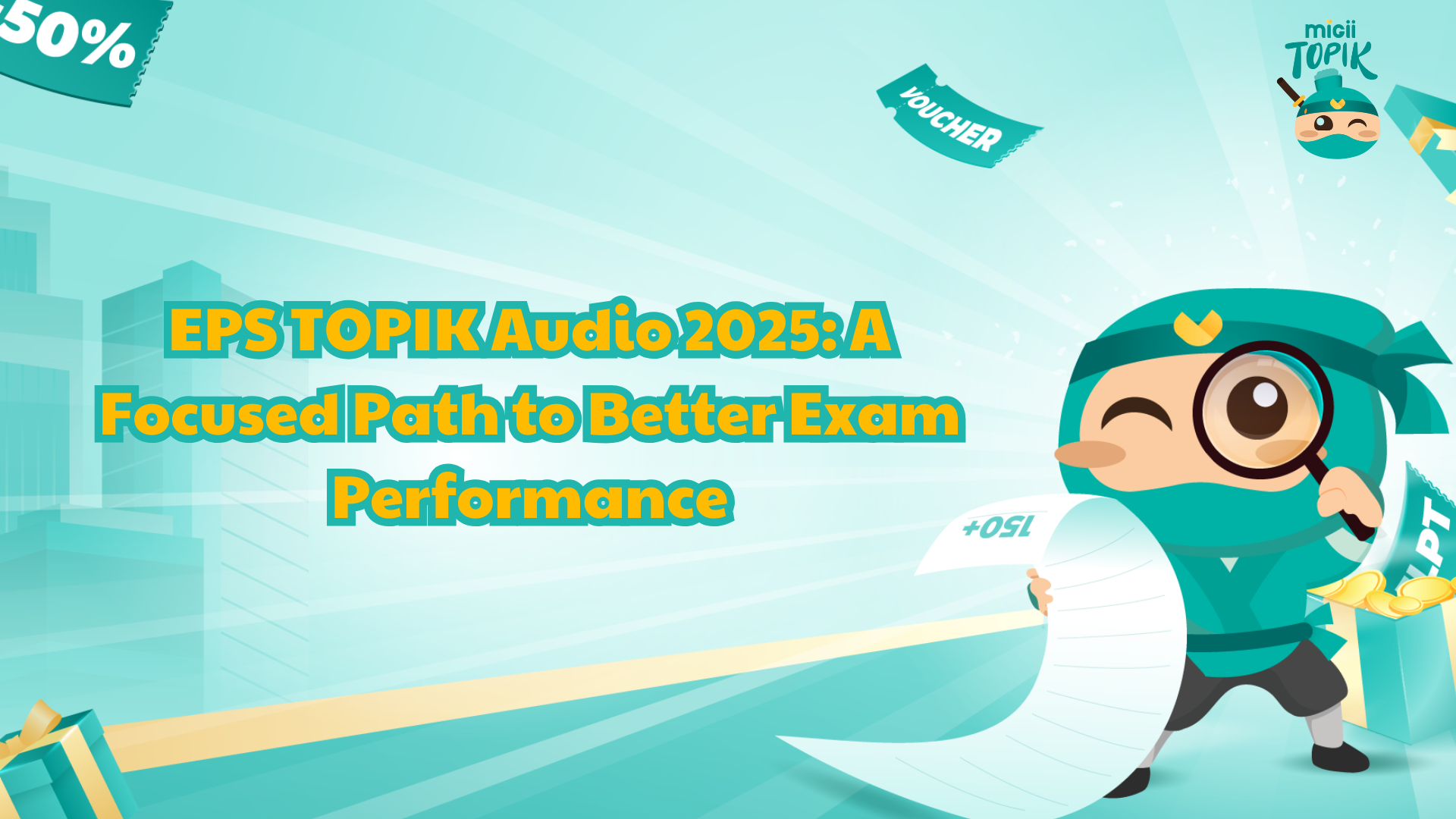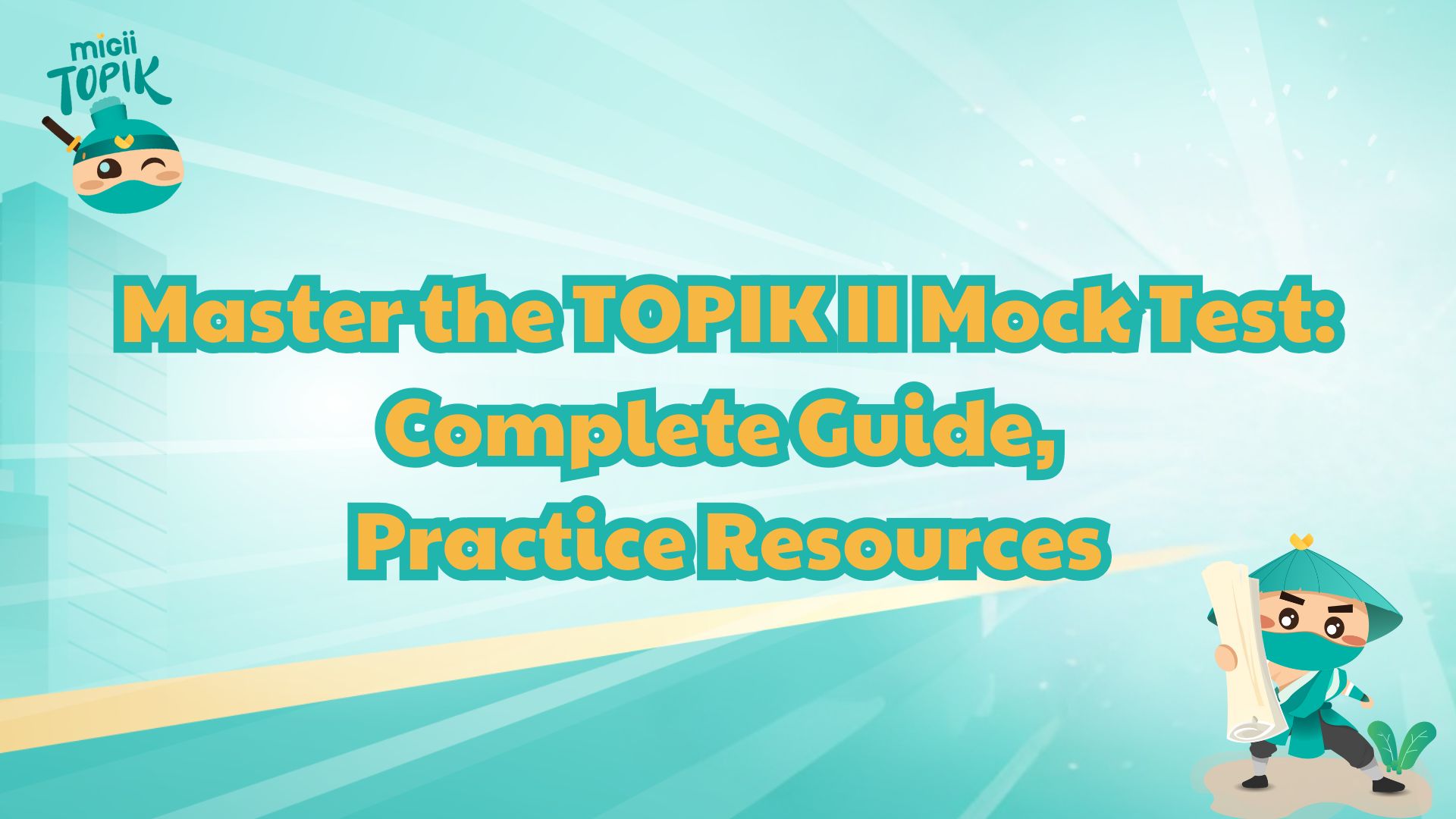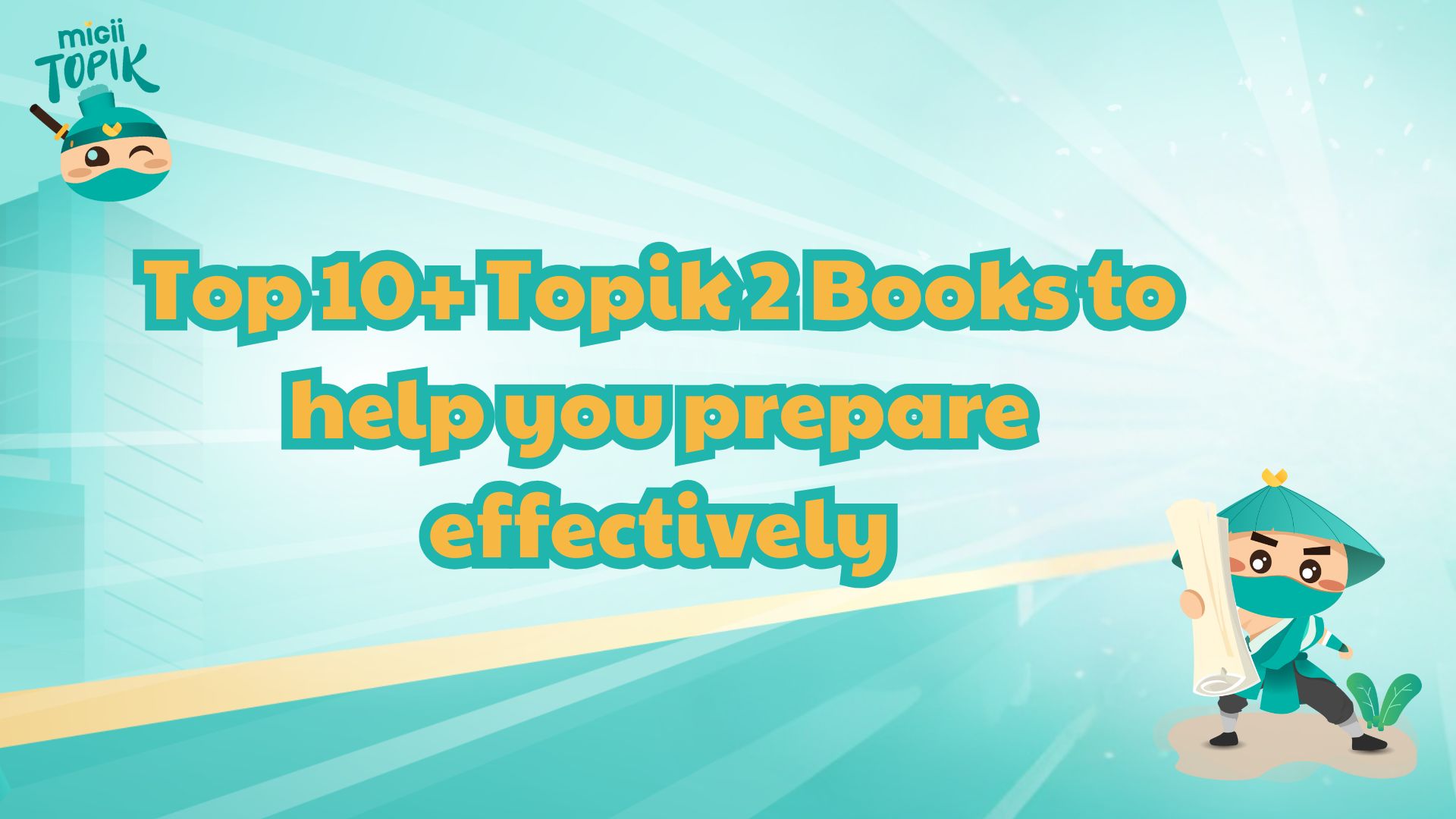Introduction to Master Topic
Master Topik is a proficiency test designed to evaluate Korean language skills for non-native speakers, covering listening, reading, writing, and overall language ability. It is not only a language certificate but also an important qualification for applying for scholarships, studying abroad in Korea, or seeking jobs that require Korean. For many learners, Master Topik is considered a milestone that proves their progress and achievement in mastering the Korean language.
The TOPIK exam in Korean serves several important purposes:
- Academic admission: Many universities in South Korea require TOPIK scores for acceptance into undergraduate and graduate programs, especially for international students.
- Employment: Companies in South Korea often use TOPIK scores to assess candidates' language skills to determine their suitability for recruitment.
- Visa and immigration: TOPIK scores can aid in obtaining visas, including work permits and permanent residency.
- Personal achievement: For learners, achieving a high TOPIK level is a commendable milestone that demonstrates language proficiency
Structure and content of Master Topik exam
Assessment skills in Master Topik
The Master Topik exam is designed to comprehensively test the learner's Korean language ability. The test content focuses on three main skills: listening, reading and writing.
Listening (듣기 평가 – Listening)
Required Skills:
- Understand main ideas and details in everyday conversations, news, academic discussions, and lectures.
- Distinguish between accents, intonation, and context.
- Infer implicit meaning (if not directly stated).
Assessment:
- Short conversation (choose the appropriate answer).
- Long conversation/speech (understand main idea, speaker's attitude).
- Listen to news, announcements, and speeches.

Listening skills in Master Topik
The biggest challenge lies in speaking at a natural pace while employing a broad range of academic vocabulary, as well as navigating complex real-life situations.
Reading (읽기 평가 – Reading)
Required skills:
- Quickly comprehend different types of texts such as advertisements, announcements, news articles, essays, and academic materials.
- Recognize text structures, identify main ideas, and grasp arguments and supporting details.
- Analyze advanced grammar, difficult vocabulary, idioms, and proverbs.
Evaluation methods:
- Fill in missing words or sentences in a passage.
- Identify the main idea and the author’s attitude.
- Infer information that is not explicitly stated in the text.
Main challenge: Maintaining fast reading speed while handling a wide range of vocabulary, including specialized terms.
Writing Assessment
Necessary Skills:
- Construct grammatically correct sentences and use contextually appropriate vocabulary.
- Organize ideas logically and write paragraphs with an introduction, body, and conclusion.
- Compose a short essay (600–700 words) that presents a viewpoint and analyzes a social issue.
The evaluation criteria in Master TOPIK focus on different levels of writing ability. Test-takers may first be required to complete fill-in-the-blank or sentence continuation tasks, which measure grammatical accuracy and vocabulary usage. They are also expected to write a short descriptive or explanatory paragraph of about 100–200 words, demonstrating coherence and clarity.
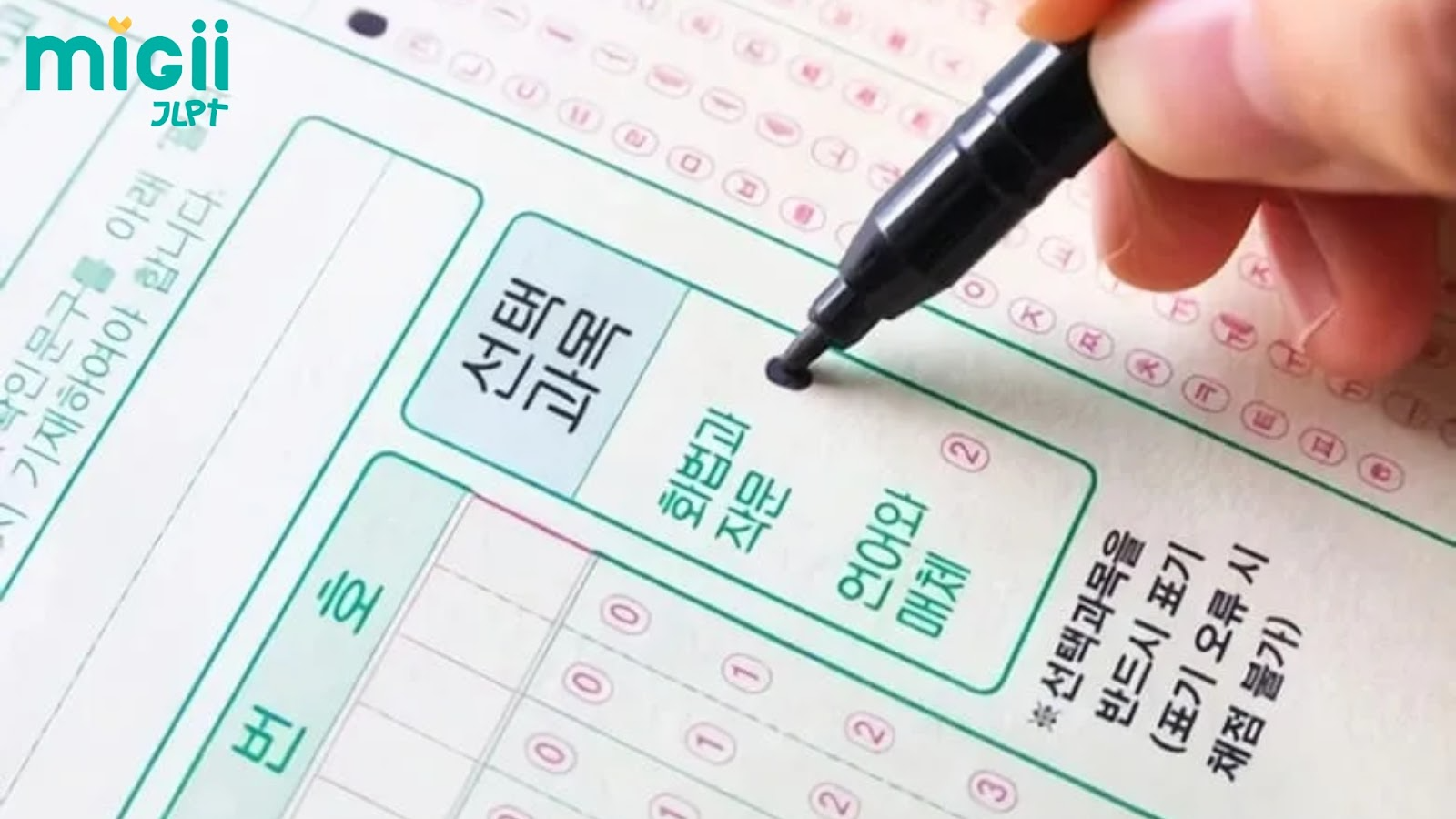
Writing Assessment master topik
At the highest level, candidates must compose an argumentative or analytical essay of 600 words or more, showcasing logical organization, critical thinking, and advanced language proficiency. These tasks together assess both fundamental and academic writing skills.
Levels, Scoring, and Differences between Master TOPIK and New TOPIK Master
Master TOPIK is divided into two main levels: TOPIK I (beginner) and TOPIK II (intermediate–advanced). TOPIK I includes levels 1 and 2, while TOPIK II covers levels 3 to 6. Each section of the test is scored up to 200 points, with a maximum total of 600. Candidates are assigned a level based on their total score. For example, 80–139 points correspond to level 1, 230 points or more may qualify for level 4, and above 370 points is required to achieve level 6.
Differences between Master TOPIK and New TOPIK Master
- Master TOPIK focuses on standard test papers that help learners become familiar with the exam format, question types, and evaluation criteria.
- New TOPIK Master is an upgraded version that not only updates the latest exam trends but also integrates effective study methods, test-taking strategies, and skill-based practice materials.
- The biggest difference is that New TOPIK Master emphasizes practical training, simulating the real exam experience and helping learners quickly improve their Korean proficiency.
By combining the solid foundation of Master TOPIK with the innovations of New TOPIK Master, learners can significantly increase their chances of achieving higher scores.
Should I buy Hot TOPIK or Master TOPIK?
When deciding between purchasing Hot TOPIK or Master TOPIK for exam preparation, many students find themselves unsure. Both books are designed to assist learners in practicing for the TOPIK exam, yet they cater to different learning needs and preferences.
Hot TOPIK is ideal for those who wish to focus intensively on specific skills. Each volume in this series targets a distinct skill area, allowing learners to dive deeper into the practice exercises tailored for that particular skill.
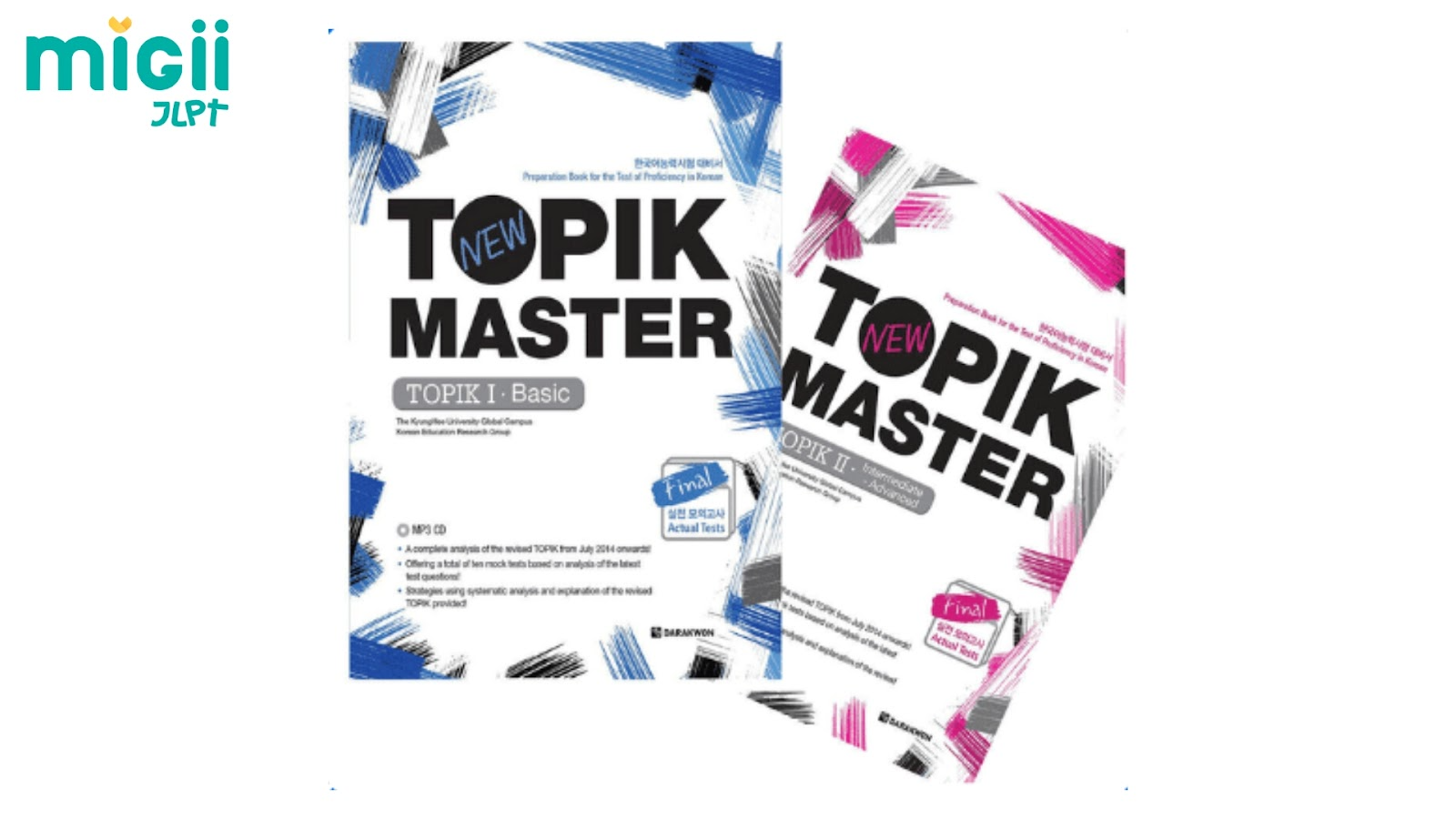
Should I buy Hot TOPIK or Master TOPIK?
On the other hand, Master TOPIK is suitable for students who aim to prepare for the entire TOPIK exam by covering all three essential skills: Listening, Reading, and Writing. This book provides comprehensive practice across various question formats, enabling thorough preparation for each type of task presented in the exam.
If you’re still unsure, you don’t necessarily have to choose just one. Many learners combine both resources—using Hot TOPIK to sharpen individual skills and Master TOPIK for full exam practice. And for added convenience, you can also find Master TOPIK PDF download versions online, which allow you to study anytime, anywhere without carrying heavy books. This flexibility is particularly useful if you want to review listening tracks, re-read passages, or redo writing exercises on the go.
Topik master pdf download
Master Topik Exam Preparation Strategy and Tips
Make a weekly/monthly study plan for Master Topik.
The most important thing you need to do is to make a specific plan for studying the book. Instead of doing all 3 skills of Listening - Reading - Writing every day, which makes you feel tired, divide it into one skill each day and revise carefully so that studying is really effective. Below, Migii will suggest a review schedule for the first week of studying the Master TOPIK book series, please refer to it!
|
Monday |
Read carefully about TOPIK exam:
|
|
Tuesday |
Do Reading skills in Test 1:
|
|
Wednesday |
Do Listening skill in Test 1:
|
|
Thursday |
Do Writing skill in Test 1:
|
|
Friday |
Do full Test 2:
|
|
2 days weekend |
Review all knowledge from the entire week of practice tests, including new vocabulary and grammar noted during the test correction process. |
Combine learning with other forms
- Learning Korean through movies: If studying through books makes you feel bored, try switching to learning Korean through movies! Some sources for learning Korean through movies with bilingual subtitles that you should try are Netflix, youtube “낸시Nancy”, youtube “Pit-A-Pat Korean”, youtube “House of Mochi”... Here you will have access to hundreds of good Korean movies with Korean - Vietnamese or Korean - English subtitles to practice listening and reading skills, and learn vocabulary and effective expressions.
- Improve your knowledge through Korean news and newspapers: The TOPIK writing test not only requires candidates to have a rich Korean vocabulary but also a deep understanding of society. Therefore, improve your knowledge by reading many Korean books, documents, magazines or watching Korean TV news to provide yourself with more useful knowledge. Some reputable channels you should watch are KBS World, Arirang, Korea.net, Naver, Daum, Nate...
Master Topik is great for sharpening specific skills, while Master TOPIK offers full exam preparation. To study more effectively, you can also use online tools like Migii, which provide mock tests, progress tracking, and smart learning features. Combining Master TOPIK PDF download with Migii will give you a more complete and efficient TOPIK study plan.
